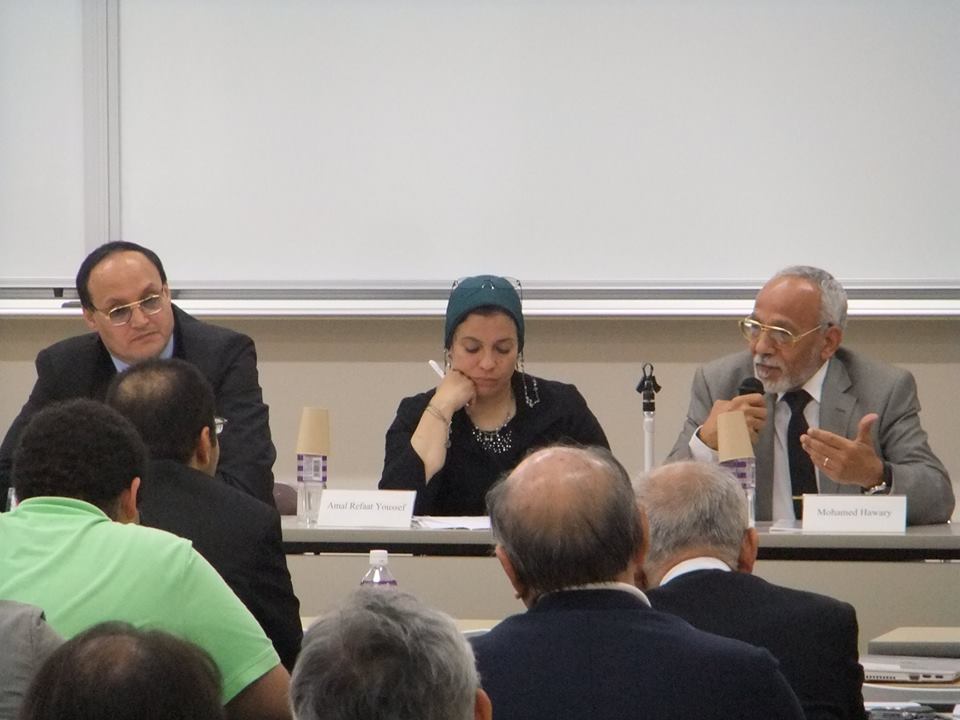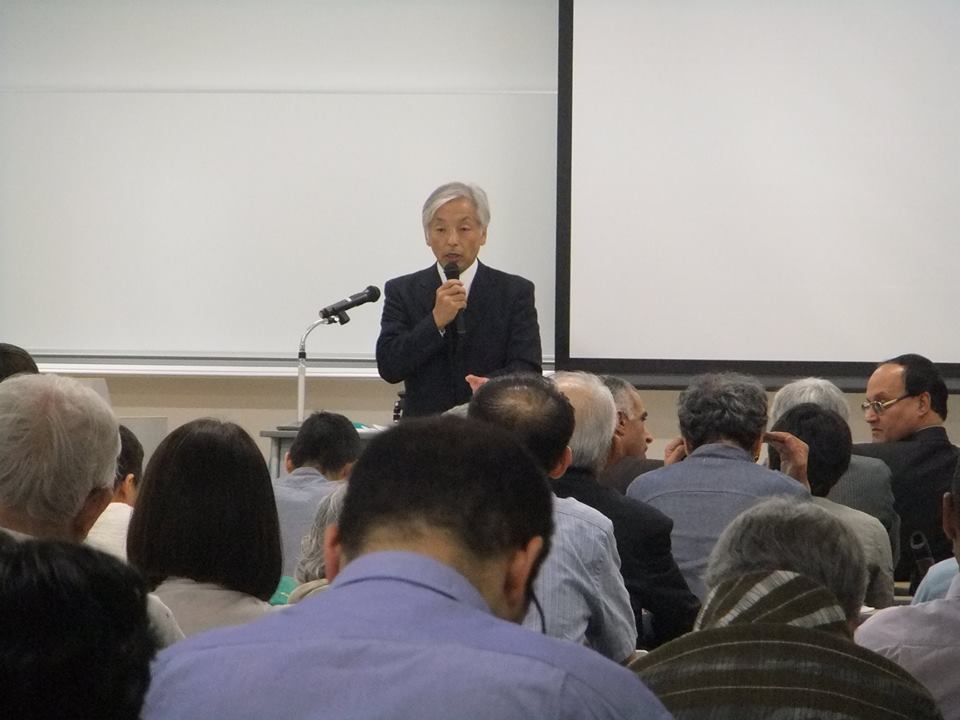Center for Interdisciplinary Study of Monotheistic Religions(CISMOR)Doshisha University
> Public Lectures > The 4th International Conference on Values in ReligionPublic Lectures
Center of Oriental Studies, Cairo University / CISMOR, Doshisha University
The 4th International Conference on Values in Religion
| Date: |
2015/09/13 13:00-15:30 |
|---|---|
| Place: | Room SK112 (Shikokan 1st floor), Karasuma Campus, Doshisha University |
| Lecture: |
Prof. katsuhiro Kohara (Doshisha Univesity) Prof. Amal Refaat Youssef (Cairo University) Prof. Mohamed Hawary (Ain Shams University) |
| Summary: | |
|
According to Kohara, recent international news frequently included the word “conscience”; for example, when the body of the Syrian refugee child drifted ashore on Turkey’s coast. Upon seeing this heartbreaking news, perceptions regarding refugees began to change; it altered people’s consciences and was shared throughout the world. However, people’s “conscience” can also result in an increase of conflicts over values. For example, a woman in Kentucky who, based on her Christian beliefs and conscience, refused to issue marriage certificates to same-sex couples, even though same-sex marriage was recognized by the U.S. Supreme Court. In these examples, people do not move in one direction based their conscience; one can find conflicts over values. The etymological meaning of conscience is to “know together” and it does not relate to good or evil. Today, with things categorized as good and evil, sharp distinctions are drawn between friend and foe, and terrorism and the chain of retaliation-based violence continues. For this reason, returning to the original meaning of the word and coming together is important. In the Western tradition, while one’s interiority used to “know together” with others and God, from Enlightenment thought in the eighteenth century and onwards, knowing without God was emphasized. Liberalism is similar, and many Muslim immigrants would not imagine knowing something without God. It could be said that it is a conflict between the two values of the freedom of being with God and the freedom from God. Kohara asserts that there is a need to expand people’s consciousness and proposed the following: 1) the construction of consciousness that can engage in dialogues with Islamic values; 2) value pluralism that includes dialogues; and 3) the cultivation of broad-minded consciousness in discussions that do not immediately decide what is good and what is evil. According to Youssef, Japanese anime is frequently viewed in Egypt, where previous generations in Egypt viewed cartoons. They watched thee cartoons once a week for one hour and were strongly influenced by the U.S. Unlike today’s anime, its content was very mild. This was also a generation that acquired knowledge, values, and information from books, and was influenced by them, which led them to change the government and create new history. However, today's students watch anime more than they read books. According to a survey of the younger generation, they attach importance to Japan’s creativity and worldview concerning anime more than the image of religion. The reasons they provide for becoming interested in anime is that the genre skillfully presents Japanese culture and societal characteristics, emphasizes the resilience of the main character and friendship, has profound and unexpected plots, and realistically depicts human suffering. Some anime includes violent content. Anime can both become a reason for our society to become violent in the future, and is useful for deepening its knowledge and values. Youssef also introduced ways that anime could be used to cultivate people's consciences and make dialogue possible, having removed its negative aspects. Hawary described how the three Abrahamic religions not only share prophets and the same God, but also views of adultery. In Judaism, the Hebrew Bible prescribes the death penalty for those who engaged in adultery; it does not clearly prohibit pre-marital intercourse and thus, there is no punishment. However, by tradition, it has been viewed as an offense. In Christianity, adultery is viewed as immoral and is referenced in multiple sections of the Bible. In Islamic Law, adultery generally refers to the sexual intercourse of a man or woman with someone who is not his or her marital partner. Islam prohibits both premarital and extramarital intercourse outside of marriage. While the Torah prescribes the death penalty for adultery, two people of good character must have witnessed the act for a guilty verdict. The Bible does not view a married man who has a relationship with an unmarried woman as a sin. The sin of adultery includes a married or unmarried man having a relationship with a married woman. In Christianity, any extramarital intercourse is prohibited. Paul states that those who commit adultery are unable to enter the land of God. However, most Christians believe that even if married people commit adultery, they can be forgiven by God and their marriage restored. While many cultures view adultery as a serious sin, laws prohibiting adultery have been the subject of debate from the twentieth century onwards. Tomoki Asaka Postdoctral Fellow, CISMOR |
|
|
Admission Free, No Reservation Necessary. lecture in Japaese and English, Interpretation will be provided. |
|

